#phd computer application
Explore tagged Tumblr posts
Text
0 notes
Text
#phd computer application#phd in computer science#phd degree#phd course#phd research programs#research programs#doctorate degree'#top university in ranchi
0 notes
Text
Unlock Your Academic Potential: Pursue a PhD at SAGE University Bhopal
SAGE University, Bhopal is happy to share that we are going to conduct entrance exam for our upcoming PhD Batch 07 ( Spring 2023-24). Important dates and details of the entrance exam is given below. Apply Now!
More details visit website: https://sageuniversity.edu.in/
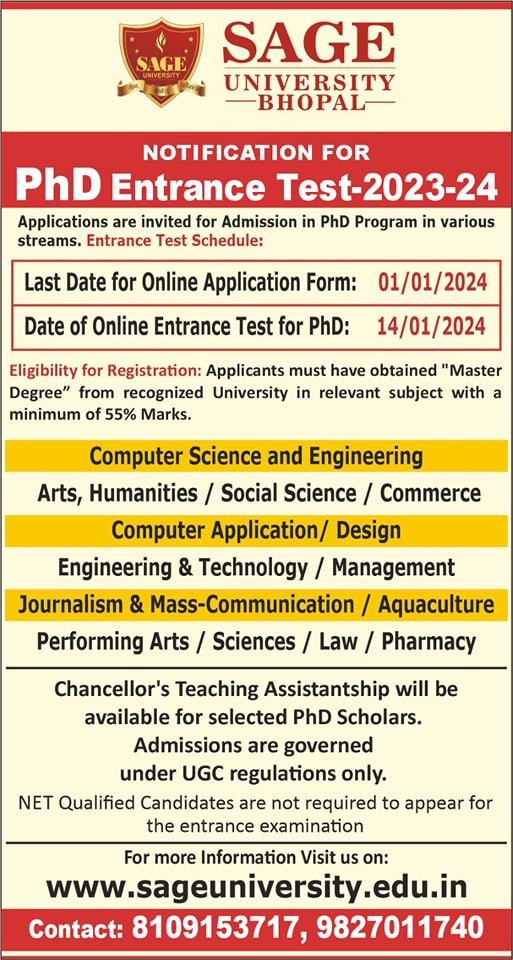
#PhD#PhD entrance exam#online entrance test for phd#SAGE University Bhopal#best university in bhopal#computer science and engineering#computer application#design#engineering & technology#performing arts#management#sciences#law#pharmacy#aquaculture#social science#journalism & mass communication#commerce
1 note
·
View note
Text
youtube
#education#Post Graduate Diploma In Management#Post Graduate Diploma In Computer Applications#phd in foreign universities#phd abroad with scholarship for indian students#phd funding for indian students#study abroad doctoral programs#Youtube
1 note
·
View note
Text
Ford x Fem!Reader
Math Assistant Pt.1
Summary: Ford needs himself an assistant, Stanley makes an online post for him and BOOM there you are, coming to meet him for an interview at the diner.
Warnings: Erm... this is a nothing sandwich I THINK. Please let me know if I should add something
A/N: My brothers in christ please this is my first fic that I wrote on a whim, I had an idea and I started writing. I have never written fan ficiton in my life so pls be nice... also who up wit dey werm to Stanford Pines HOOBA HOOBA!!!!! Okay also I want to write SMUT for this so imagine this is like the really really really long winded plot to the porno. K thanks bye read if u want or dont i dont control you.
——————
Ford shook his head at Stanley who was seated in front of a new computer now placed in the living room, “I’m still confused on why we should be posting the ad listing “online” rather than the local paper, or putting up flyers around town.” Ford used air quotes for emphasis, he still found the whole idea strange, he liked the computer for being a tool he could use to further research. He didn't like it so much as a vessel for finding candidates for a job he was offering, the thought that he had no idea who was communicating with him unsettled him a bit. Especially knowing the kind of work he was going to be having this future assistant… well assist with.
“Because yer never going to find someone with the qualifications yer asking for in this town” Stan looked over his shoulder at a crossed arm Ford. “Hiring someone for a summer job who has a PhD in Application Math, whatever that means-“
“Applied Mathematics, Stanley” Ford interrupted.
“Whatever it is you're not going to find that here, you and fiddleford are probably the only people in this town to actually have a college degree” he said with a chuckle, turning back to the computer. He was clicking around on some website that Ford had never heard of, let alone just recently finding out what the internet was. “I'm setting up a job listing on some of the local college websites, ya know for people that are studying or just done studying”. The clicking of the mouse and the typing of keys continued as Ford ran the motion through his head, overthinking perhaps every outcome of Stanley posting that job listing. Ultimately though Ford knew he was right in that, no one with at least a degree in Applied Mathematics was going to be residing nearby.
“Just please be careful about the information you include in this job posting, try to keep it minimal as possible. If they ask more questions about specifics you can let them know that I can explain in person.”
Stan looked over his shoulder, his eyebrows slightly downturned with a smirk rising on his face, “I didn’t realize you had hired me to be your assistant, you're going to have to cough up if you want me to do this for you”. Ford groaned in annoyance of his brother, “Stanley you know I don’t know how to use any of that”.
“Exactly why you're going to want to have me help you out with this”, Stanley moved his arm to drape across the back of the chair he was in, looking more directly at him. “That’ll be twenty dollars”, he held out his hand expectantly at his twin. A beat of silence passed between the two as they had a small staring contest, both men’s brows furrowed at the other.
Ford finally reached for his back pocket after he felt he had glared at his brother enough, he slipped a twenty dollar bill from the leather wallet and practically slammed it in his hand before walking in the opposite direction without a word. While Stan on the other hand, was more than beaming when he saw Ford’s hand fall to his back pocket, Stan half shouted as Ford strode out of the room.
“You’ll thank me later when I find the perfect candidate!” He laughed as he said it and returned to more clicking and typing around the website.
Ford returned to the lab to finish up some things before the kids were scheduled to get there later in the month. When they returned from the long months at the ocean, Ford wanted nothing more than to work on something in his lab again. He loved feeling the anticipation of a project becoming something, but of course he knew he could easily get carried away. After Dipper and Mabel left last summer, before Stanley and him were going to head out, he had made a major discovery while working in the lab. He had discovered an atom that was capable of recreating a direct clone of itself and in as many atoms he could count. He continued to work on the project until Stanley was practically dragging him from the house to leave to sail around the world.
While sailing towards one of their final destinations at the end of the trip, Ford finally opened up to Stanley about his worries of falling into the same pits as before. He was worried that he would become too involved, as he already felt himself doing as they were leaving for their trip. He also desperately needed some alone time from Stanley, but he didn’t mention that to him while they were on the boat.
“What if you hired someone to help you with the project?” Stan had offered a possible solution, while he had sat in the boat looking at Ford who was deep in thought over his dilemma. “I mean obviously the last time that happened, it wasn’t great either…” He trailed off after the look on Ford’s face became apparent, regretting the thought of his old college friend.
“I know the last time wasn’t great” Stanley pushed forward, “but maybe if you have someone hired to help with the smaller stuff. Things like using the calculator or something, whatever the small stuff even is to you” he said the last part under a fake cough which earned him a glare from his brother. However, the idea wasn't… terrible, Ford thought. He pondered over the possibilities of having someone helping him out, along with having the two kids upstairs to bother him. If he were to have someone who he didn't have to know that well take on most of the minor details, the equations and such, he would be able to prioritize the best parts of the project while also having time for his family. At least, that’s what he had hoped for when Stanley initially offered the idea.
“That could be a good idea…” Ford said after taking several moments to ponder the possibilities. “I would need someone who could do advanced mathematical equations, with room for equations that could possibly extend what they know…”. Stanley just looked at him deep in thought, wondering how there could be that many things to think about, the answer seemed clear to him.
Back in the lab, Ford could hear Stanley groaning loudly about some ‘unknown error message’. He continued to monitor and take note of the atoms under his advanced microscope for a while, waiting until Stanley had further news of any postings. He wondered what his new assistant would be like, if they could have the same passion for knowledge and understanding as he does.
———
A few days had passed, Ford falling into old habits quickly, holing himself up in the lab for hours upon hours. The only time he was seen over the last 48 hours was to grab more coffee from the kitchen, he caught naps in between work, falling asleep over his piles of scrap paper filled with numbers and letters. Ford had not anticipated how much mathematical reasoning was going to follow the atom cloning discovery, he was falling behind on moving forward with more discoveries on the atoms, but over hundreds of miniscule details that needed solving kept him at the desk. Stan walked down on the 49th hour of Ford’s lock down in the basement, opening the door noisily and making as much noise as possible on the way down to let him know he was on the way. Ford was scribbling away on the nth page of scrap work, crossing out failed attempts of solving equations as Stan broached the lab floor.
Stan awkwardly cleared his throat at Ford when he didn’t turn around, even though Stanley was sure to have made enough noise on the way down. Ford turned his head over his shoulder, his body seeming to not want to move from the space it had cramped into. He raised his eyebrows in a questioning manner, as if asking ‘What? Im busy’. Stan gave a huff of annoyance before starting,
“I have about 3 applications that I thought were worth looking over, most of the idiots who applied didn’t even have math degrees. All they see in the listing is free housing and they flock like birds trying to claw their way in” he said with a slight chuckle. He strided over to Ford’s desk, as Ford leaned back finally interested in what Stan was saying. He took the papers from Stanley and began to look over them. He began thumbing through the few resumes, looking over each one carefully noting that all three people had at least some qualifications in mathematics. He looked up to Stan and gave him a tight smile.
“I appreciate you getting these for me, I’ll reach out to the ones I feel are qualified.” A beat passed between them, Ford paused for a second wondering if he should just return to work at this point or if Stanley had something else since he hasn't made any move to leave.
“I think the one on the bottom will be the best fit.” Stan said with a certain look in his face that Ford couldn’t place, as he turned to leave. Ford looked at him as he walked towards the stairs with a questioning look on his face, wondering what could have led his brother to place a preference on one of these resumes even though he didn't know what applied mathematics was. As Stan trudged up the stairs Ford called to his brother,
“I'll be sure to look at that one, thank you Stanley.” Which made Stanley pause and turn to look at Ford, a distant smile on his face as he nodded and continued up the stairs. Ford turned back to his desk and pulled the resume on the bottom up to the top, the header in nice bold letters a fine print used, he noted.
Y/N YL/N
He also took note that this was the only two-page resume offered to him, with the education list taking up most of the room. Several universities/schools were listed and his eyes read over the names and degrees that followed. He read all the way to the bottom where it listed your highschool with graduation dated in 1999. He noted this person was in their early 30’s with several bachelors degrees in several sciences, two master’s degrees in statistics and biology, and of course a Ph.D in applied mathematics. The latest graduation listed was University of Oregon masters program in statistics for April, which he noted it was now early May noting it would be fresh on the mind. He moved your resume to the back of the small stack, looking over the first two he skipped over, and honestly he wished he saved yours for last. The first two were jokes compared to the advanced knowledge you listed, he set the first aside after noting that the education list was no longer than a paragraph, and the second resume didn’t take long to set aside either as his eyes raked in the many spelling errors.
He read over your resume again looking for a way to contact you to set up the interview. He noted the phone number and email in the corner of the first page, and made to move upstairs to the kitchen phone. As he stood up however, his muscles almost molded into place from sitting at the desk, stopped him from moving further. He groaned as he began to stretch himself out, thinking about how he couldnt wait to stop looking at math problems for hours on end.
Heading back upstairs he reached the phone and quickly gazed at the microwave clock, 3:49 pm. He was glad it wasn’t later than five, as he picked up the corded receiver and began to punch in the numbers. The phone rang a few times before your voice fluttered over the phone, “Hello?”. Ford cleared his throat awkwardly, “Hello! Yes, is this Y/N YL/N? Oh it is, great, this is Stanford Pines calling about a job posting for the assistant position. I was hoping to set up an interview to discuss further details of the position.”
“I was just wondering if I would hear back from this offer,” the light voice on the other end laughed a pleasant laugh a little before continuing, “I’d love to join you for an interview regarding the position, I’m free anytime, anywhere this coming week and the next.”.
Ford offered a time for tomorrow at the local diner, which he provided the address to. The voice on the phone wished Ford a great rest of his night and that they would see him tomorrow. Ford wished them the normal pleasantries he hated to conduct while making mundane phone calls such as these. He was slightly relieved to find you weren’t completely strange, at least right off the bat. When he hung the phone back on the hanger, Stan suddenly spoke, causing Ford to jump from the lack of warning.
“So did you end up going with the one I said?” Stan looked smug as Ford met his gaze, knowing damn well he scared Ford on purpose. Ford rolled his eyes after he settled after the slight scare,
“Unsurprisingly, as you could probably assume. You shouldn’t have even bothered with the other two. One only had a few community college classes under their belt.” Ford turned to make more coffee, he figured he would stretch his legs now as he was planning on working on some more equations before the meeting tomorrow. Stan gave a hearty laugh, “She’s also quite the looker, surprised me when I was pulling resumes”. Ford gave his brother a look as he asked, “Can’t you make your picture anything you want online?”. He remembers when they got the computer last time the kids were here, Dipper had shown him how he had his profile for online DD&MD. He absolutely didn’t understand it, but Dipper assured him this summer he would teach him. Which would benefit him from not having to pay Stanley anytime he needed something done the modern way (this was not often).
“Yeah but this was on a college website, everyone has their picture I think. It looks all like student ID’s… Oh don’t look at me like that! I looked at all of their profile pictures. She just happened to have the best looking picture.” Stan finished with a shrug and a laugh. Ford had looked at him like he was crazy for looking through all the people who applied profile pictures before feeling the need to ask, “You did give me recommendations on experience, not looks correct?”.
Stan shook his head, “I know you would kill me if I passed on a math nerd over an actual good looking girl” he laughed, turning “I'm going to head out gotta meet some people, don’t wait up for me.” Stan said as he was walking out the door, grabbing the keys as he slammed the door. Ford shook his head and decided to take his brother's word for it, his mind replaying what his twin mentioned, “quite the looker” as if that could have any effect on anything. Ford thought he didn't care much at all for how a person appeared as long as they could solve these problems that's all that mattered, and maybe that they were decently pleasant to work with. He couldnt help but reflect back to the phone call, your light and airy voice filling his ear with pleasant sound, at least you didnt have a horrible voice and he could probably get used to hearing that voice more often, he thought. Ford filled his cup with coffee and headed back downstairs not giving the interview tomorrow much more thought than your voice on the phone.
—————
A/N: Yay I did it!!! yeah so what if its a nothing sandwich?? Didnt i literally say that before hand.. hope you enjoyed if ya read! <3
#gravity falls#ford pines x reader#stanford x reader#stanford pines x reader#ford x reader#ford pines#stanford pines#gravity falls x reader#stanford pines x you#gravity falls fanfiction#fanfic#fan fiction#series#grunkle ford#hunkle ford#nothing sandwich#i wrote this listening to BRAT#gravity falls writing
82 notes
·
View notes
Text
The Whole Sort of General Mish Mosh of AI
I’m not typing this.
January this year, I injured myself on a bike and it infringed on a couple of things I needed to do in particular working on my PhD. Because I had effectively one hand, I was temporarily disabled and it finally put it in my head to consider examining accessibility tools.
One of the accessibility tools I started using was Microsoft’s own text to speech that’s built into the operating system I used, which is Windows Not-The-Current-One-That-Everyone-Complains-About. I’m not actually sure which version I have. It wasn’t good but it was usable, and being usable meant spending a week or so thinking out what I was going to write a phrase at a time and then specifying my punctuation marks period.
I’m making this article — or the draft of it to be wholly honest — without touching my computer at all.
What I am doing right now is playing my voice into Audacity. Then I’m going to use Audacity to export what I say as an MP3, which I will then take to any one of a few dozen sites that offer free transcription of voice to text conversion. After that, I take the text output, check it for mistakes, fill in sentences I missed when coming off the top of my head, like this one, and then put it into WordPress.
A number of these sites are old enough that they can boast that they’ve been doing this for 10 years, 15 years, or served millions of customers. The one that transcribed this audio claims to have been founded in 2006, which suggests the technology in question is at least, you know, five. Seems odd then that the site claims its transcription is ‘powered by AI,’ because it certainly wasn’t back then, right? It’s not just the statements on the page, either, there’s a very deliberate aesthetic presentation that wants to look like the slickly boxless ‘website as application’ design many sites for the so-called AI folk favour.
This is one of those things that comes up whenever I want to talk about generative media and generative tools. Because a lot of stuff is right now being lumped together in a Whole Sort of General Mish Mosh of AI (WSOGMMOA). This lump, the WSOGMMOA, means that talking about any of it is used as if it’s talking about all of it in the way that the current speaker wants to be talked about even within a confrontational conversation from two different people.
For people who are advocates of AI, they will talk about how ChatGPT is an everythingamajig. It will summarize your emails and help you write your essays and it will generate you artwork that you want and it will give you the rules for games you can play and it will help you come up with strategies for succeeding at the games you’ve already got all while it generates code for you and diagnoses your medical needs and summarises images and turns photos of pages into transcriptions it will then read aloud to you, and all you have to focus on is having the best ideas. The notion is that all of these things, all of these services, are WSOGMMOA, and therefore, the same thing, and since any of that sounds good, the whole thing has to be good. It’s a conspiracy theory approach, sometimes referred to as the ‘stack of shit’ approach – you can pile up a lot of garbage very high and it can look impressive. Doesn’t stop it being garbage. But mixed in with the garbage, you have things that are useful to people who aren’t just professionally on twitter, and these services are not all the same thing.
They have some common threads amongst them. Many of them are functionally looking at math the same way. Many or even most of them are claiming to use LLMs, or large language models and I couldn’t explain the specifics of what that means, nor should you trust an explainer from me about them. This is the other end of the WSOGMMOA, where people will talk about things like image generation on midjourney and deepseek (pieces of software you can run on your computer) consumes the same power as the people building OpenAI’s data research centres (which is terrible and being done in terrible ways). This lumping can make the complaints about these tools seem unserious to people with more information and even frivolous to people with less.
Back to the transcription services though. Transcription services are an example of a thing that I think represents a good application of this math, the underlying software that these things are all relying on. For a start, transcription software doesn’t have a lot of use cases outside of exactly this kind of experience. Someone who chooses or cannot use a keyboard to write with who wants to use an alternate means, converting speech into written text, which can be for access or archival purposes. You aren’t going to be doing much with that that isn’t exactly just that and we do want this software. We want transcriptions to be really good. We want people who can’t easily write to be able to archive their thoughts as text to play with them. Text is really efficient, and being able to write without your hands makes writing more available to more people. Similarly, there are people who can’t understand spoken speech �� for a host of reasons! – and making spoken media more available is also good!
You might want to complain at this point that these services are doing a bad job or aren’t as good as human transcription and that’s probably true, but would you rather decent subtitles that work in most cases vs only the people who can pay transcription a living wage having subtitles? Similarly, these things in a lot of places refuse to use no-no words or transcribe ‘bad’ things like pornography and crimes or maybe even swears, and that’s a sign that the tool is being used badly and disrespects the author, and it’s usually because the people deploying the tool don’t care about the use case, they care about being seen deploying the tool.
This is the salami slicer through which bits of the WSOGMMOA is trying to wiggle. Tools whose application represent things that we want, for good reasons, that were being worked on independently of the WSOGMMOA, and now that the WSOGMMOA is here, being lampreyed onto in the name of pulling in a vast bubble of hypothetical investment money in a desperate time of tech industry centralisation.
As an example, phones have long since been using technology to isolate faces. That technology was used for a while to force the focus on a face. Privacy became more of a concern, then many phones were being made with software that could preemptively blur the faces of non-focal humans in a shot. This has since, with generative media, stepped up a next level, where you now have tools that can remove people from the background of photographs so that you can distribute photographs of things you saw or things you did without necessarily sharing the photos of people who didn’t consent to having their photo taken. That is a really interesting tool!
Ideologically, I’m really in favor of the idea that you should be able to opt out of being included on the internet. It’s illegal in France, for example, to take a photo of someone without their permission, which means any group shot of a crowd, hypothetically, someone in that crowd who was not asked for permission, can approach the photographer and demand recompense. I don’t know how well that works, but it shows up in journalism courses at this point.
That’s probably why that software got made – regulations in governments led to the development of the tool and then it got refined to make it appealing to a consumer at the end point so it could be used as as a selling point. It wouldn’t surprise me if right now, under the hood, the tech works in some similar way to MidJourney or Dall-E or whatever, but it’s not a solution searching for a problem. I find that really interesting. Is this feature that, again, is running on your phone locally, still part of the concerns of the WSOGMMOA? What about the software being used to detect cancer in patients based on sophisticated scans I couldn’t explain and you wouldn’t understand? How about when a glamour model feeds her own images into the corpus of a Midjourney machine to create more pictures of herself to sell?
Because admit it, you kinda know the big reason as a person who dislikes ‘AI’ stuff that you want to oppose WSOGMMOA. It’s because the heart of it, the big loud centerpiece of it, is the worst people in the goddamn world, and they want to use these good uses of this whole landscape of technology as a figleaf to justify why they should be using ChatGPT to read their emails for them when that’s 80% of their job. It’s because it’s the worst people in the world’s whole personality these past two years, when it was NFTs before that, and it’s a term they can apply to everything to get investors to pay for it. Which is a problem because if you cede to the WSOGMMOA model, there are useful things with meaningful value that that guy gets to claim is the same as his desire to raise another couple of billions of dollars so he can promise you that he will make a god in a box that he definitely, definitely cannot fucking do while presenting himself as the hero opposing Harry Potter and the Protocols of Rationality.
The conversation gets flattened around the basically two poles:
All of these tools, everything that labels itself as AI is fundamentally an evil burning polar bears, and
Actually everyone who doesn’t like AI is a butt hurt loser who didn’t invest earlier and buy the dip because, again, these people were NFT dorks only a few years ago.
For all that I like using some of these tools, tools that have helped my students with disability and language barriers, the fact remains that talking about them and advocating for them usefully in public involves being seen as associating with the group of some of the worst fucking dickheads around. The tools drag along with them like a gooey wake bad actors with bad behaviours. Artists don’t want to see their work associated with generative images, and these people gloat about doing it while the artist tells them not to. An artist dies and out of ‘respect’ for the dead they feed his art into a machine to pump out glurgey thoughtless ‘tributes’ out of booru tags meant for collecting porn. Even me, I write nuanced articles about how these tools have some applications and we shouldn’t throw all the bathwater out with the babies, and then I post it on my blog that’s down because some total shitweasel is running a scraper bot that ignores the blog settings telling them to go fucking pound sand.
I should end here, after all, the transcription limit is about eight minutes.
Check it out on PRESS.exe to see it with images and links!
15 notes
·
View notes
Text
The Four Horsemen of the Digital Apocalypse
Blockchain. Artificial Intelligence. Internet of Things. Big Data.
Do these terms sound familiar? You have probably been hearing some or all of them non stop for years. "They are the future. You don't want to be left behind, do you?"
While these topics, particularly crypto and AI, have been the subject of tech hype bubbles and inescapable on social media, there is actually something deeper and weirder going on if you scratch below the surface.
I am getting ready to apply for my PhD in financial technology, and in the academic business studies literature (Which is barely a science, but sometimes in academia you need to wade into the trash can.) any discussion of digital transformation or the process by which companies adopt IT seem to have a very specific idea about the future of technology, and it's always the same list, that list being, blockchain, AI, IoT, and Big Data. Sometimes the list changes with additions and substitutions, like the metaverse, advanced robotics, or gene editing, but there is this pervasive idea that the future of technology is fixed, and the list includes tech that goes from questionable to outright fraudulent, so where is this pervasive idea in the academic literature that has been bleeding into the wider culture coming from? What the hell is going on?
The answer is, it all comes from one guy. That guy is Klaus Schwab, the head of the World Economic Forum. Now there are a lot of conspiracies about the WEF and I don't really care about them, but the basic facts are it is a think tank that lobbies for sustainable capitalist agendas, and they famously hold a meeting every year where billionaires get together and talk about how bad they feel that they are destroying the planet and promise to do better. I am not here to pass judgement on the WEF. I don't buy into any of the conspiracies, there are plenty of real reasons to criticize them, and I am not going into that.
Basically, Schwab wrote a book titled the Fourth Industrial Revolution. In his model, the first three so-called industrial revolutions are:
1. The industrial revolution we all know about. Factories and mass production basically didn't exist before this. Using steam and water power allowed the transition from hand production to mass production, and accelerated the shift towards capitalism.
2. Electrification, allowing for light and machines for more efficient production lines. Phones for instant long distance communication. It allowed for much faster transfer of information and speed of production in factories.
3. Computing. The Space Age. Computing was introduced for industrial applications in the 50s, meaning previously problems that needed a specific machine engineered to solve them could now be solved in software by writing code, and certain problems would have been too big to solve without computing. Legend has it, Turing convinced the UK government to fund the building of the first computer by promising it could run chemical simulations to improve plastic production. Later, the introduction of home computing and the internet drastically affecting people's lives and their ability to access information.
That's fine, I will give him that. To me, they all represent changes in the means of production and the flow of information, but the Fourth Industrial revolution, Schwab argues, is how the technology of the 21st century is going to revolutionize business and capitalism, the way the first three did before. The technology in question being AI, Blockchain, IoT, and Big Data analytics. Buzzword, Buzzword, Buzzword.
The kicker though? Schwab based the Fourth Industrial revolution on a series of meetings he had, and did not construct it with any academic rigor or evidence. The meetings were with "numerous conversations I have had with business, government and civil society leaders, as well as technology pioneers and young people." (P.10 of the book) Despite apparently having two phds so presumably being capable of research, it seems like he just had a bunch of meetings where the techbros of the mid 2010s fed him a bunch of buzzwords, and got overly excited and wrote a book about it. And now, a generation of academics and researchers have uncritically taken that book as read, filled the business studies academic literature with the idea that these technologies are inevitably the future, and now that is permeating into the wider business ecosystem.
There are plenty of criticisms out there about the fourth industrial revolution as an idea, but I will just give the simplest one that I thought immediately as soon as I heard about the idea. How are any of the technologies listed in the fourth industrial revolution categorically different from computing? Are they actually changing the means of production and flow of information to a comparable degree to the previous revolutions, to such an extent as to be considered a new revolution entirely? The previous so called industrial revolutions were all huge paradigm shifts, and I do not see how a few new weird, questionable, and unreliable applications of computing count as a new paradigm shift.
What benefits will these new technologies actually bring? Who will they benefit? Do the researchers know? Does Schwab know? Does anyone know? I certainly don't, and despite reading a bunch of papers that are treating it as the inevitable future, I have not seen them offering any explanation.
There are plenty of other criticisms, and I found a nice summary from ICT Works here, it is a revolutionary view of history, an elite view of history, is based in great man theory, and most importantly, the fourth industrial revolution is a self fulfilling prophecy. One rich asshole wrote a book about some tech he got excited about, and now a generation are trying to build the world around it. The future is not fixed, we do not need to accept these technologies, and I have to believe a better technological world is possible instead of this capitalist infinite growth tech economy as big tech reckons with its midlife crisis, and how to make the internet sustainable as Apple, Google, Microsoft, Amazon, and Facebook, the most monopolistic and despotic tech companies in the world, are running out of new innovations and new markets to monopolize. The reason the big five are jumping on the fourth industrial revolution buzzwords as hard as they are is because they have run out of real, tangible innovations, and therefore run out of potential to grow.
#ai#artificial intelligence#blockchain#cryptocurrency#fourth industrial revolution#tech#technology#enshittification#anti ai#ai bullshit#world economic forum
32 notes
·
View notes
Note
What degree do you have???? If you don't mind answering
I have a Bachelor of Physics and a Master of Optical Science. I was also a PhD Candidate in the optical sciences, specifically quantum optical computing and computation. This means I am A) a jack of all trades, B) specifically a light nerd, C) more specifically a light nerd about the kind of light that makes other light nerds' eyes glaze over. I also took a bit of a detour learning about Differential Geometry and Topological Algebra, whose physics applications are respectively black holes and topologically protected states (glitches in the matrix which ignore certain inconvenient parts of reality).
Also Topological Algebra happens to have the most gorgeously simple and powerful way of solving simple RLC electrical circuits I've ever seen. It's faster than the usual method and also how you solve this problem. Unfortunately it takes some 5-10 years of math education past calculus to learn, otherwise it should absolutely replace the usual methods.
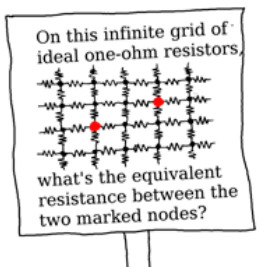
Anyway, I Mastered out of my PhD program because, long story short, academia has absolutely nothing in the way of labor protections. And advisors aren't actually required to, you know, advise their students. I was alternatively cut loose with no support and then abused badly enough by an advisor that I was having panic attacks as I went to work each morning. So I decided enough was enough, got my Masters, and left.
Serious advice kids: Absolutely do not enter a PhD program unless you A) have an external backer who will protect you and your interests (like a company that's putting you through your PhD while you work for them part-time), B) are able and willing to cut your losses and sink several years of work if things go south.
It's not about how hard the work is, it's a labor rights thing. As a PhD student, you have none and the degree of abuse you can be subjected without recourse to is extreme. You should not sign up for a PhD without those assurances for literally the exact same reasons you don't sell yourself into indentured servitude. It's simply not a safe thing to do.
14 notes
·
View notes
Text
✨Questions Tag Game✨
Thanks for tagging me @burntheedges 🩵
Of course I’m going to add GIFs and images. Did anyone really expect me to post something without visual aids??
[photos are my own (apart from the one immediately below, which is from here), and unless otherwise credited, GIFs were made by me during office hours when I was supposed to be working… 🤫]

Do you make your own bed?
Not in terms of making it look all neat and tucked in, no. But that’s because I’m a teensy bit of a germaphobe, and humans naturally sweat at night, which means you must leave your mattress uncovered for a while after you get up to ensure it airs. So, for most of the day (because I forget to straighten it up), my bed just looks like this:

(Just for fun, how many Mandalorians can you spot in the pic?)
Favourite number?
It’s always been 2, and my reasoning used to be that all good things come in pairs. But having discovered my autism in recent years, I’ve come to realise it probably more likely represents the maximum number of people I’m most comfortable interacting with at any one time. So it’s a manageable number. It’s also an even number. And it’s a prime number (in fact it's the only even prime number). It’s a pretty number – it has a nice curved top and a solid, sturdy base. It stops 1 from being lonely, so it’s a kind number.
Is this a weird answer? All of these are really logical reasons to me!

[GIF found here]
What’s your job?
It’s become so specialised that I no longer have a job title, but I started as a legal PA for one of the senior partners at a Legal 500 law firm in London. I flirted with the idea of qualifying as a solicitor but realised there was no way in hell I’d be comfortable standing up in court and speaking in front of lots of people (and I work in the criminal law department so not keen on casually chatting to criminals either). Instead, I decided to become The Person Who Knows Everything.
So now I write briefs to Counsel, proofs of evidence, funding applications; I analyse evidence, conduct legal research, advise the solicitors on their cases; I train paralegals and admin staff; I do a load of data analysis and make pretty spreadsheets for the bosses; and I manage the firm’s IT needs because I can do computer stuff too. I’m basically their go-to girl for anything that seems complicated or time-consuming… and I don’t have to wear a stupid wig in court.
And the best part is, during Covid lockdown, I demonstrated I can do 100% of my job from home, so I was allowed to move 150 miles away, and I now only have to visit my office two days a month! 🙌🏻
Downside: the arduous and random nature of the job means I’m never up to date and always very tired.

If you could go back to school, would you?
My original plan after getting my undergrad degree was to do a Masters and PhD and become an academic, but I put all that on hold for my (now ex) husband so he could finish his PhD and first postdoc. I’m very glad I never went back, though, because I realise that academia is not the place for me… see above comment about not being able to stand up and talk in court to understand why standing up and talking in a lecture hall would be equally nerve-wracking for me. So, no, I’m content with my current level of schooling.
Honestly, university was more about learning how to ‘adult’ properly than obtaining any useful knowledge on the course anyway (she says, routinely using concepts learnt on her fiction writing modules when crafting Mando fics).

Can you parallel park?
Yup. Narrow roads and a lack of parking spaces in the UK kind of make it a non-optional skill here.
That said, I do sometimes see people desperately trying to line themselves up to get into a space and making an absolute farce out of it, so I guess maybe some people here think it’s optional, but I’d rather not have that kind of stress, so I practised until I could do it easily.

[original GIF found here and then cropped]
Do you think aliens are real?
The way this is phrased… do I think they’re real? Like, do I think the grey ones with big black eyes are anally probing residents in certain sections of North America on a regular basis? Hmm, no. Too many episodes of The X-Files. I mean, Fox Mulder: yum, but I really Don’t Want To Believe, thanks.
But, I remain open to the idea that alien life has evolved elsewhere in the known universe. It’s inconceivably huge, after all. There’s nowhere near enough data to prove (or even speculate) either way – just look at the Drake equation, which has been used to both ‘prove’ and ‘disprove’ the possibility – so I’ll reserve any kind of judgment until some real evidence appears.

Can you drive a manual car?
Yeah, of course. It’s the standard driving test in the UK and allows you to drive both automatic and manual – you actually have to specifically ask to learn only automatic if you decide you can’t handle gears. And, like, it’s all muscle memory, so it’s really not as hard as people think once you’re used to it. I tried to drive an automatic a few years back and found myself involuntarily shadow-shifting the gears!
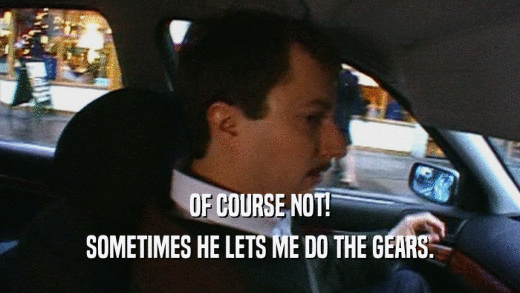
[original GIF found here and then trimmed for length]
What’s your guilty pleasure?
Mostly, I don’t feel guilty about indulging in pleasures these days. I used to be really affected by social pressures (back before I discovered my autism and still felt like I had to ‘mask’ and fit in), so I used to feel guilty talking about my hyperfixations, but now I couldn’t care less. I shall consume them endlessly and unselfconsciously. It’s very liberating.
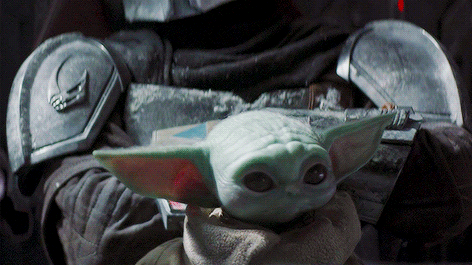
Any phobias?
I suppose the answer is sharks, which has no sensible basis for being a phobia because I’ve never had any real encounters to make me fearful (thank fuck!). In fact, I walked through the shark tunnel at SeaWorld just fine as a 7-year-old. Unless that planted some kind of seed of terror, I don’t know. Not sure when it really took hold, but I can’t even look at photos these days. It’s their damn teeth. Someone’s going to have to give me a tooth report on Gladiator II before I can go see it.
The hell if I’m gonna put a photo (or God forbid a GIF) of a shark here, so, umm…

Favourite childhood sport?
Two answers: (1) Football (AKA soccer). I played for a girl’s team when I was about 11, but it was only because the boy I liked was into football. I couldn’t give a shit about it these days, and I don’t think I ever really liked it – I was just ‘masking’, as I did for most of my childhood, but I convinced myself I loved it.
(2) Karate, which I decided all by myself that I fancied doing, then found I was actually quite good at it and excelled at it for a while. But I was 9, and they decided I was so good that I should go and join the adult class (age 14 and up), which I hated, so I quit.

[GIF is one I already had saved from Reddit a while ago, but I can't find the source anymore, so sorry for not crediting the maker]
Do you talk to yourself?
Sometimes, but not often. I live alone, so I occasionally just need to exercise my vocal cords lol. It also depends on what mood I’m in. On an average day, no, I don’t really feel the need to fill the silence, but if I’m excited/animated/annoyed in some way, I might say stuff aloud. Basically, if I’m inclined to utter curse words for any reason, I’ll probably use other words aloud too.
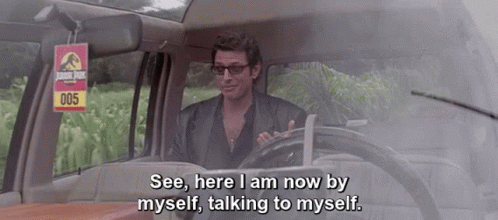
[GIF found here]
Tattoos?
I only have one right now, but I plan to increase that number someday. See photo below; I used to have chameleons as pets and got this tattooed near my right hip when I turned thirty to commemorate them. It’s really small.
I would like to get a phrase in Mando’a inked on me somewhere, probably “Kaysh meg miit’gaana, oyacyi”, which means “she* who writes, remains” [*substitute chosen pronoun – Mando’a doesn’t distinguish genders], and is a Mandalorian proverb teaching that you can live forever if you leave behind written words. I have it engraved on my iPad.

Favourite colour?
Very much the blue (with a hint of green) end of the colour spectrum. For something soft, duck egg blue, or for something bold, teal. See the colour of the titles in this post.
I also like the colours of hyperspace and would happily snuggle up with Din in the cockpit.

Do you like puzzles?
Yeah, I guess. I don’t dislike them. But I don’t really do them much. In terms of the crossword/sodoku/brain teaser sort, I might choose to do them in specific settings, like on vacation when I inevitably need to offer my brain something different than whatever book I’m binge-reading.
In terms of the jigsaw type, I have short phases of thinking, “Ooh, that’ll be fun!”, trying to do one, getting bored, and then forcing myself to finish. Last time that happened was Covid lockdown. Took me a year! Though, to be fair, it was one of these bastards…
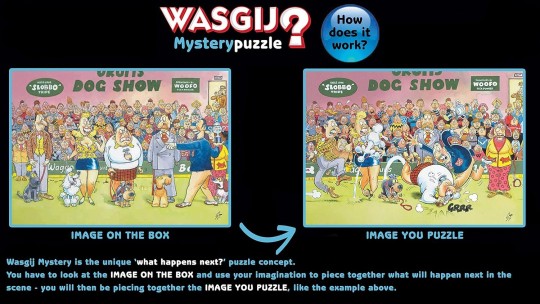

Okay, I’m done. I realise I’m very late to the party, and a lot of people have already done this one, so sorry if you’ve already participated. No pressure (and no need to illustrate with gifs and images, I just can’t help myself)… 🩵
@604to647 @beefrobeefcal @d4rm4nd4 @feral-ferrule @gracieheartspedro
@joelslegalwhre @littlemisspascal @magpiepills @penvisions @quicksilvermad
@secretelephanttattoo @studioghibelli @syd-djarin @the-mandawhor1an @zaddymandalorian
23 notes
·
View notes
Text
#phd computer science#phd computer application#phd degree#phd course admission#part time phd course#phd in computer sceinece course
0 notes
Text
A Doctor of Philosophy (Ph.D.) is the pinnacle of academic achievement, signifying a profound mastery of a subject area. A Ph.D. in Computer Science goes beyond theoretical knowledge, immersing students in cutting-edge research, problem-solving, and the development of innovative solutions in diverse fields.
#phd computer science#phd computer application#phd degree#phd admission 2025#phd course#part time phd admission#part time phd course
0 notes
Text
By Joel Ceausu
The former Université de Montréal lecturer who participated in a fracas inside Concordia University last Nov. 8, and was recorded calling Jewish women “whores” and told Jewish students to “Go back to Poland,” has been arrested in France for ‘apology of terrorism.’
The arrest earlier this month by French authorities of Yanise Arab in his home near Grenoble was broadcast on social media by his mother, showing police escorting Arab out in handcuffs while other agents hauled away his computer equipment.

The 30-year-old PhD student is suspected of “apology of terrorism” in social media posts between 2022 and 2024. According to local French media reports, Arab was released from custody the same day—but the investigation continues.
In a press release posted to social media, his lawyer denounced the arrest as “an attack on freedom of expression, opinion and research… This umpteenth procedure aims once again to repress individuals and organizations that denounce the ongoing massacres in Gaza and Lebanon, demand an end to Israel’s impunity, respect for the law and the application of international resolutions in the region,” wrote Rafik Chekkat.
In a posting after his release, Arab characterized the arrest as violent.
Arab received a notice of suspension from UdeM within a few days after the Concordia incident as an internal investigation was launched after video surfaced of him involved in the melee around the Shabbat table for hostages at Concordia’s downtown Hall building.
17 notes
·
View notes
Text
Engineering is Inherently Political
Okay, yea, seemingly loaded statement but hear me out.
In our current political climate (particularly in the Trump/post-Trump era ugh), the popular sentiment is that scientists and other academics are inherently political. So much of science gets politicized; climate change, abortion, gender “issues”, flat earth (!!), insert any scientific topic even if it isn’t very controversial and you can find some political discourse about it somewhere. However, if you were to ask people if they think that engineering is political, I would bet that 9/10 people would say no. The popular perception of engineering is that it’s objective and non-political. Engineering, generally, isn’t very controversial.
I argue that these sentiments should switch.
At its base level, engineering is the application of science and math to solve problems. Tack on the fact that most people don’t really know what engineering is (hell, I couldn’t even really describe it until starting my PhD and studying that concept specifically). Not controversial, right? We all want to solve the world’s problems and make the world a better place and engineers fill that role! But the best way to solve any problem is a subjective issue; no two people will fully agree on the best way to approach or solve a problem.
Why do we associate science and scientists with controversy but engineers with objectivity? Scientists study what is. It’s a scientist’s job to understand our world. Physicists understand how the laws of the universe work, biologists explore everything in our world that lives, doctors study the human body and how it works, environmental scientists study the Earth and its health, I could go on. My point is that scientists discover and tell us what is. Why do we politicize and fear monger about smart people telling us what they discover about the world?
Engineering, however, has a reputation for being logical, objective, result oriented. Which I get, honestly. It’s appealing to believe that the people responsible for designing and building our world are objective and, for the most part, they are. But this is a much more nuanced topic once you think deeper about it.
For example, take my discipline, aerospace engineering. On the surface, how to design a plane or a rocket isn’t subjective. Everyone has the same goal, get people and things from place to place without killing them (yea I bastardized my discipline a bit but that’s basically all it boils down to). Let’s think a little deeper about the implications though. Let’s say you work for a spacecraft manufacturer and let’s hypothetically call it SpaceX. Your rocket is so powerful that during takeoff it destroys the launch pad. That’s an expensive problem so you’re put on the team of engineers dedicated to solving this problem. The team decides that the most effective and least expensive solution is to spray water onto the rocket and launchpad during takeoff. This solution works great! The launchpad stays intact throughout the launch and the company saves money. However, that water doesn’t disappear after launch, and now it’s contaminated with chemicals used in and on the rocket. Now contaminated water flows into the local environment affecting not just the wildlife but also the water supply of the local community. Who is responsible for solving that issue? Do we now need a team of environmental or chemical engineers to solve this new problem caused by the aerospace engineers?
Yes, engineers solve problems, but they also cause problems.
Every action has its reaction. Each solution has its repercussions.
As engineers we possess some of the most dangerous information in the world and are armed with the weapon to utilize it, our minds. Aerospace engineers know how to make missiles, chemical engineers know how to make bombs, computer scientists know how to control entire technological ecosystems. It’s very easy for an engineer to hurt people, and many do. I’m not exempt from this. I used to work for a military contractor, and I still feel pretty guilty about the implications of the problems that I solved. It is an engineer’s responsibility to act and use their knowledge ethically.
Ethical pleas aside, let’s get back to the topic at hand.
Engineering is inherently political. The goal of modern engineering is to avert catastrophe, tackle societal problems, and increase prosperity. If you disagree don’t argue with me, argue with the National Academy of Engineering. It is an engineer’s responsibility to use their knowledge to uplift the world and solve societal problems, that sounds pretty political to me!
An engineer doesn’t solve a problem in a vacuum. Each problem exists within the context of the situation that caused it as well as the society surrounding that situation. An engineer must consider the societal implications of their solutions and designs and aim to uplift that society through their design and solution to the problem. You can’t engineer within a social society without considering the social implications of both the problem and the solution. Additionally, the social implications of those engineering decisions affect different people in different ways. It’s imperative to be aware and mindful of the social inequality between demographics of people affected by both the solution and the problem. For example, our SpaceX company could be polluting the water supply of a poor community that doesn’t have the resources to solve the problem nor the power or influence to confront our multi-billion-dollar company. Now, a multi-billion-dollar company is advancing society and making billions of dollars at the cost of thousands of lives that already struggle due to their social standing in the world. Now the issue has layers that add further social implications that those without money are consistently prone to the whims of those with money. Which, unfortunately, is a step of ethical thought that many engineers don’t tend to take.
Engineers control our world. Engineers decide which problems to solve and how best to solve them. Engineers control who is impacted by those solutions. Engineers have the power to either protect and lift up the marginalized or continue to marginalize them. Those who control the engineers control the world. This is political. This is a social issue.
Now look me in the eyes and tell me that engineering isn’t inherently political.
#i feel so strongly about this oh my god#please free me from this prison#im just screaming into the void at this point#engineering#engineers#phdjourney#phdblr#phd student#grad school#academic diary#PhD
10 notes
·
View notes
Note
Hi op! Just saw that you're doing nanotech in your PhD! I'm trying to go into the field too (tbh generally material science but I've researched nanotech so hopefully I'll get into that), so I was wondering if you could tell us what you work on! Feel free to ignore this if you're not comfortable sharing it, and please go full on geek mode if you need to! I'd love to hear all about your field!
- @studyblr-perhaps (using anon mode cause tumblr still doesn't allow asks through side blogs)
Hi! Thanks for the ask, I'm so happy you're interested in this field! I may not be the right person to ask tho as many professors don't actually see my research fitting the nanotech field 😬 Since my bachelor studies (in the field of toxicology) I've been working on computational modeling. First in granular material, then as I moved to do master's in nanotech I switched to smaller particles such as exosomes. So my reasearch is supposed to be "transport of nano-/micro-particles in microfluidic devices for biomedical application" with focus on simulations which are supported by experiments.
To give a better idea what I work on:
effect of particle size on mixing of monodisperse granular material (0.5 mm - 4 mm)
exosome separation from polydisperse suspension in a microfluidic device (100 - 1000 nm)
hygroscopic growth of aerosols in respiratory system, in cooperation with Phillip Morris, (400 - 800 nm)
stem cell cultivation in a stirred bioreactor (250 um)
If you'd like to hear more I'll be happy to expand any topic! If this is nothing you're personally not interested in, I have colleagues who work with nanofibers or surface modification so I can talk about that as well :)
Have a great day! 🤍
#this ask made me so happy :)#no one ever asks about my research#and if they do they soon lose interest#as they dont understand it#asks#anka answers
9 notes
·
View notes
Text

Illuminating the proton’s inner workings
Scientists have now mapped the forces acting inside a proton, showing in unprecedented detail how quarks—the tiny particles within—respond when hit by high-energy photons.
The international team includes experts from the University of Adelaide who are exploring the structure of sub-atomic matter to try and provide further insight into the forces that underpin the natural world.
“We have used a powerful computational technique called lattice quantum chromodynamics to map the forces acting inside a proton,” said Associate Professor Ross Young, Associate Head of Learning and Teaching, School of Physics, Chemistry and Earth Sciences, who is part of the team.
“This approach breaks down space and time into a fine grid, allowing us to simulate how the strong force—the fundamental interaction that binds quarks into protons and neutrons—varies across different regions inside the proton.”
The team’s result is possibly the smallest-ever force field map of nature ever generated. They have published their findings in the journal Physical Review Letters.
University of Adelaide PhD student, Joshua Crawford’s calculations led the work together with the University of Adelaide team and international collaborators.
“Our findings reveal that even at these minuscule scales, the forces involved are immense, reaching up to half a million Newtons, the equivalent of about 10 elephants, compressed within a space far smaller than an atomic nucleus,” said Joshua.
“These force maps provide a new way to understand the intricate internal dynamics of the proton, helping to explain why it behaves as it does in high-energy collisions, such as those at the Large Hadron Collider, and in experiments probing the fundamental structure of matter.”
The Large Hadron Collider (LHC) is the world's largest and highest-energy particle accelerator. It was built by the European Organization for Nuclear Research (CERN) in collaboration with over 10,000 scientists and hundreds of universities and laboratories across more than 100 countries. The LHC's goal is to allow physicists to test the predictions of different theories of particle physics.
“Edison didn’t invent the light bulb by researching brighter candles—he built on generations of scientists who studied how light interacts with matter,” said Associate Professor Young.
“In much the same way, modern research such as our recent work is revealing how the fundamental building blocks of matter behave when struck by light, deepening our understanding of nature at its most basic level.
"As researchers continue to unravel the proton’s inner structure, greater insight may help refine how we use protons in cutting-edge technologies.
“One prominent example is proton therapy, which uses high-energy protons to precisely target tumours while minimising damage to surrounding tissue.
“Just as early breakthroughs in understanding light paved the way for modern lasers and imaging, advancing our knowledge of proton structure could shape the next generation of applications in science and medicine.
“By making the invisible forces inside the proton visible for the first time, this study bridges the gap between theory and experiment—just as earlier generations uncovered the secrets of light to transform the modern world.”
IMAGE: New force distributions revealed by the calculations, on top of the probability map of finding a quark in the proton. Credit Joshua Crawford / University of Adelaide.
4 notes
·
View notes
Text
1. Structural Foundations of the SMART Visa Program
1.1 Legislative Architecture
The SMART Visa operates under:
Royal Decree on SMART Visa B.E. 2561 (2018)
Thailand 4.0 Economic Policy Framework
BOI Investment Promotion Act (No. 4) B.E. 2560
1.2 Interagency Governance
Primary Authority: Board of Investment (BOI)
Implementation Partners:
Immigration Bureau (visa issuance)
Ministry of Digital Economy and Society (tech qualifications)
Ministry of Higher Education (academic validation)
2. Category-Specific Qualification Matrix
2.1 SMART-T (Specialists)
Technical Thresholds:
Salary Floor: THB 200,000/month (USD 5,800)
Experience Validation:
5+ years in qualifying field
Patent holders given priority
PhD waivers for certain disciplines
Industry Prioritization:
Biotechnology (Gene Therapy, Precision Medicine)
Advanced Manufacturing (Robotics, 3D Printing)
Digital Infrastructure (AI, Quantum Computing)
2.2 SMART-I (Investors)
Due Diligence Process:
Phase 1: BOI business plan review (45 days)
Phase 2: Anti-money laundering clearance
Phase 3: Investment tracing audit
2.3 SMART-E (Entrepreneurs)
Startup Validation Framework:
Tier 1 Incubators: DEPA, Thai Venture Capital Association
Minimum Traction Metrics:
THB 10M ARR or
50,000 MAU or
Series A funding
Capital Requirements:
Bootstrapped: THB 600,000 liquid
Funded: Minimum THB 5M valuation
3. Advanced Application Mechanics
3.1 Document Authentication Protocol
Educational Credentials:
WES or IQAS evaluation for non-Thai degrees
Notarized Thai translations
Employment History:
Social security cross-verification
Reference checks with former employers
3.2 Technical Review Process
Stage 1: Automated system screening
Stage 2: BOO specialist committee review
Stage 3: Final approval by Deputy Secretary-General
4. Privilege Structure and Limitations
4.1 Work Authorization Scope
Permitted Activities:
Primary employment with sponsor
Consulting (max 20% time allocation)
Academic collaboration
Prohibited Activities:
Local employment outside specialty
Unapproved commercial research
Political activities
4.2 Dependent Provisions
Spousal Work Rights:
General employment permitted
No industry restrictions
Child Education:
International school subsidies
University admission preferences
4.3 Mobility Advantages
Fast-Track Immigration:
Dedicated SMART lanes at 6 major airports
15-minute clearance guarantee
Re-entry Flexibility:
Unlimited exits without visa voidance
Automatic 48-hour grace period
5. Compliance and Renewal Dynamics
5.1 Continuous Eligibility Monitoring
Quarterly Reporting:
Employment verification
Investment maintenance
Research output (for academics)
Annual Review:
Salary benchmark adjustment
Contribution assessment
5.2 Renewal Process
Documentation Refresh: Updated financials, health insurance
Performance Evaluation: Economic impact assessment
Fee Structure: THB 10,000 renewal fee + THB 1,900 visa stamp
5.3 Grounds for Revocation
Material Changes: Employment termination, investment withdrawal
Compliance Failures: Missed reporting, legal violations
National Security Concerns: Classified determinations
6. Comparative Analysis with Global Competitors
6.1 Strategic Advantages
Tax Optimization: 17% flat rate option
Research Incentives: BOO matching grants
Commercialization Support: THBI co-investment
7. Emerging Policy Developments
7.1 2024 Program Enhancements
Blockchain Specialist Category (Q3 rollout)
Climate Tech Fast-Track (Carbon credit linkage)
Regional Expansion: Eastern Economic Corridor focus
7.2 Pending Legislative Changes
Dual Intent Provision: PR application without visa surrender
Skills Transfer Mandate: Local training requirements
Global Talent Pool: Reciprocal agreements in negotiation
8. Practical Application Strategies
8.1 Pre-Application Optimization
Salary Structuring: Base vs variable compensation
Patent Portfolio Development: Thai IP registration
Local Network Building: Thai professional associations
8.2 Post-Approval Planning
Tax Residence Strategy: 180-day calculations
Asset Protection: Thai holding company formation
Succession Planning: Will registration requirements
9. Critical Risk Factors
9.1 Common Rejection Reasons
Document Discrepancies: Date inconsistencies
Qualification Gaps: Unrecognized certifications
Financial Irregularities: Unverified income streams
9.2 Operational Challenges
Banking Restrictions: Foreign account limitations
Healthcare Access: Specialty treatment approvals
Cultural Integration: Workplace adaptation
10. Conclusion: Strategic Implementation Framework
For optimal SMART Visa utilization:
Pre-qualification Audit: 90-day preparation period
BOI Engagement: Pre-submission consultation
Compliance Infrastructure: Digital reporting systems
Contingency Planning: Alternative category eligibility
#thailand#immigration#immigrationinthailand#thailandvisa#thaivisa#visa#thai#thailandsmartvisa#smartvisa#smartvisainthailand#thaismartvisa
2 notes
·
View notes